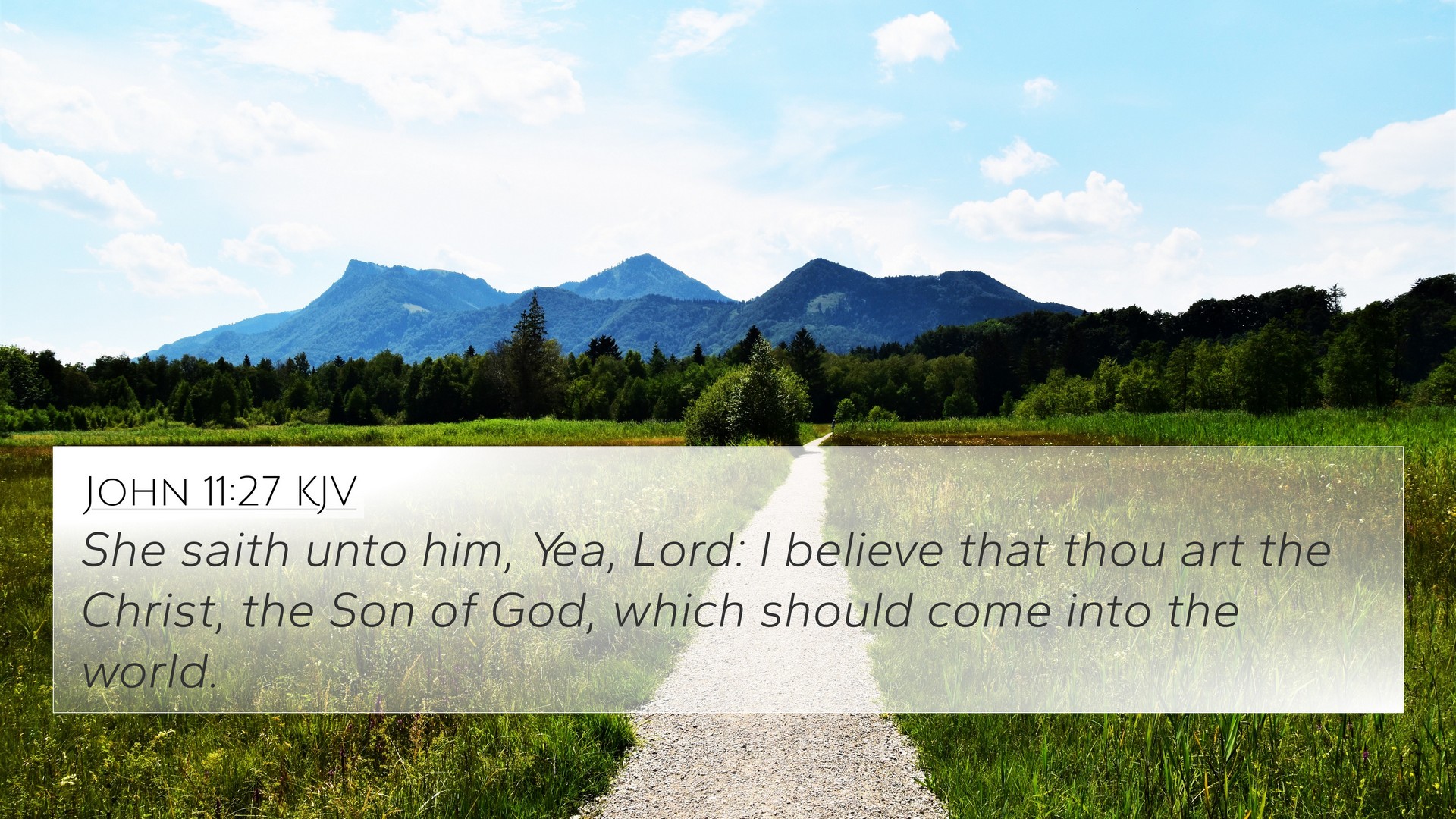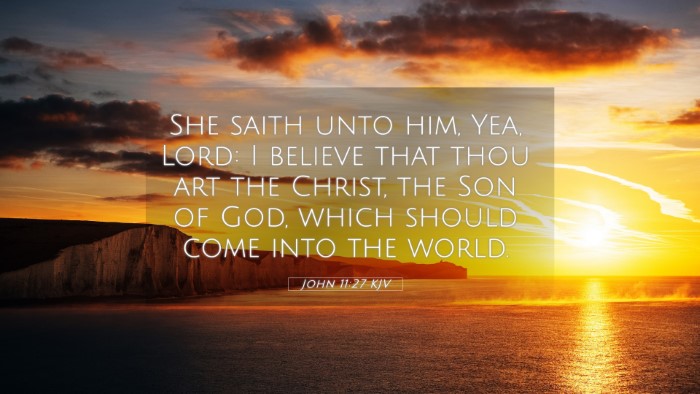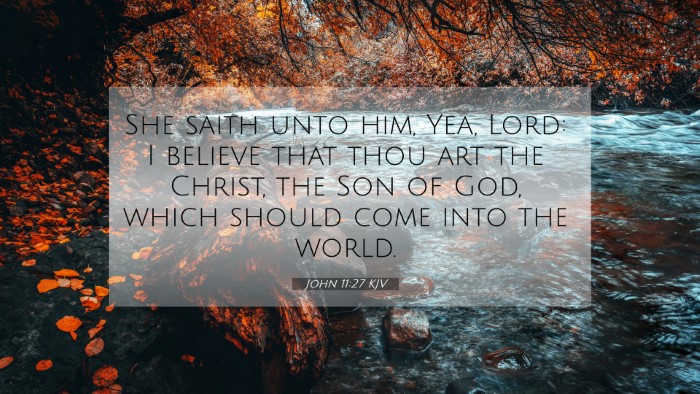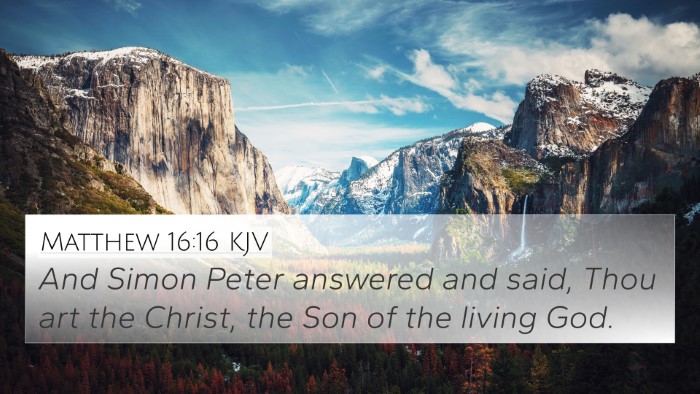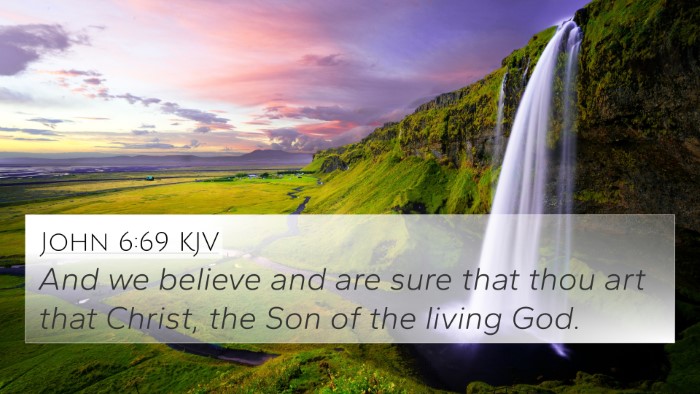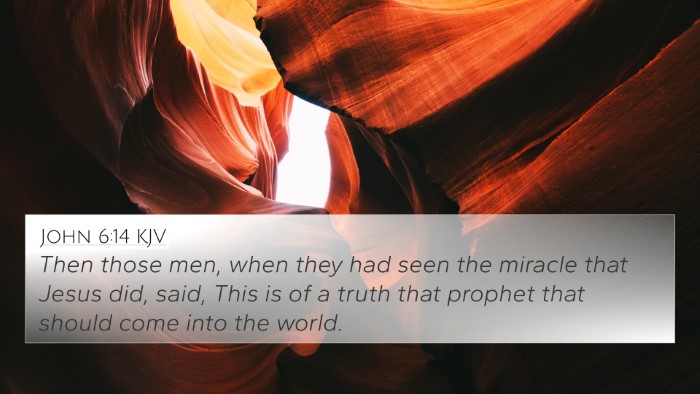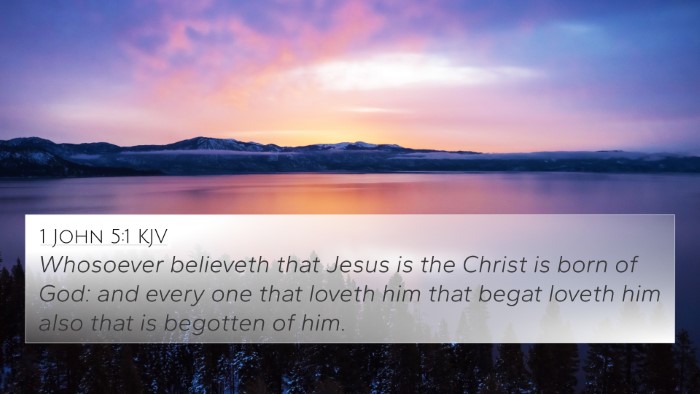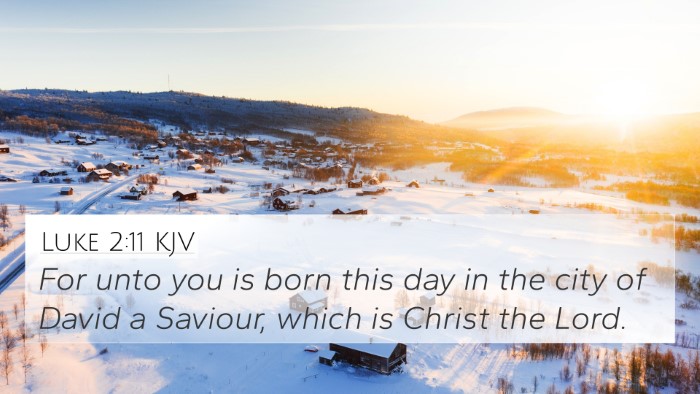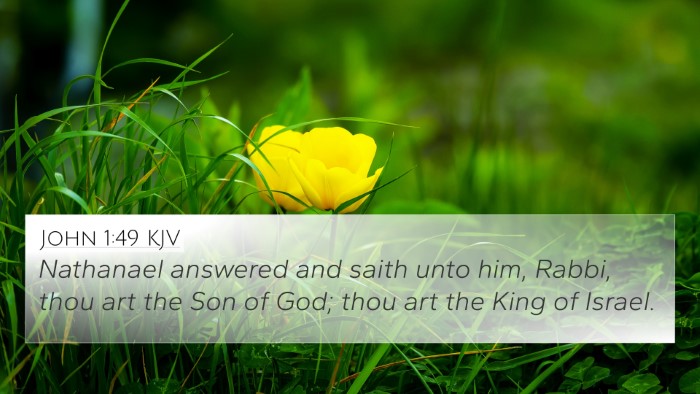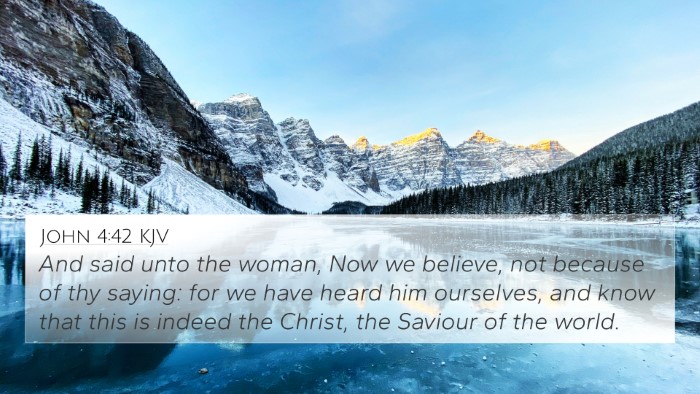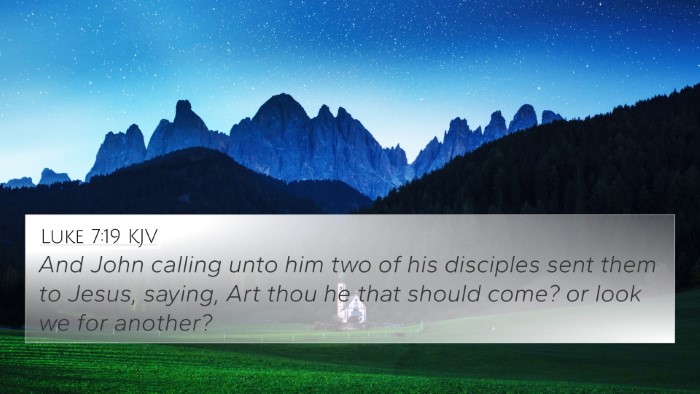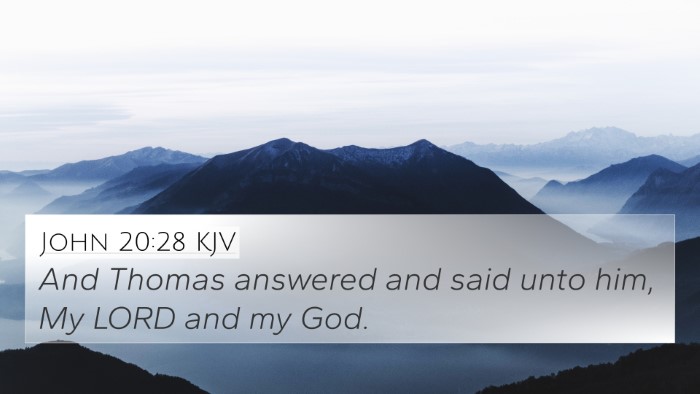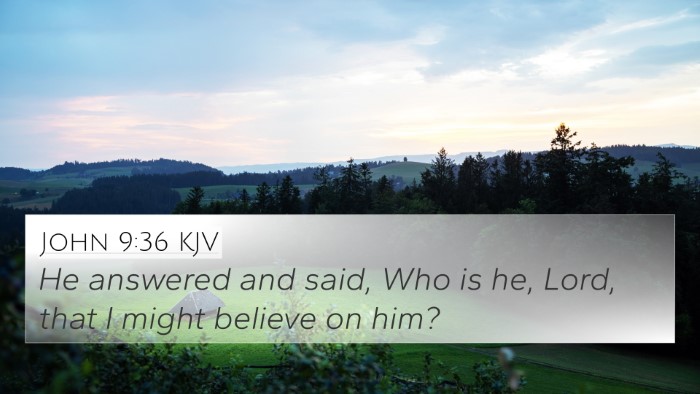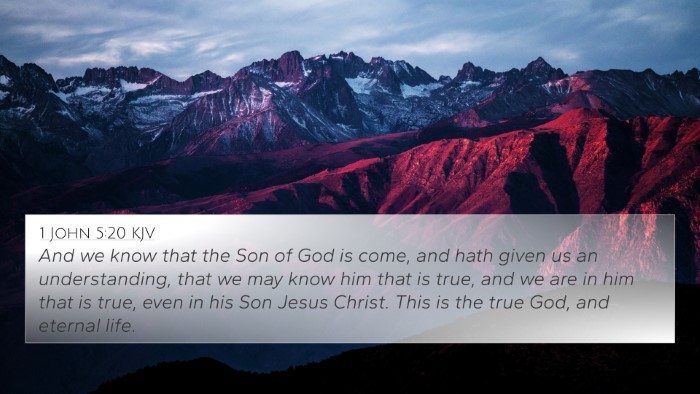Meaning and Interpretation of John 11:27
Verse: "Yes, Lord; I believe that you are the Christ, the Son of God, who is coming into the world." (John 11:27)
Overview
The declaration made by Martha in this verse encapsulates a profound affirmation of faith. In the context of John's Gospel, it signifies recognition of Jesus' divine identity and mission, placing it as a pivotal moment in the narrative surrounding the resurrection of Lazarus. The insights drawn from public domain commentaries, such as those by Matthew Henry, Albert Barnes, and Adam Clarke, provide a deeper understanding of this pivotal confession.
Martha's Confession
Martha’s response to Christ reveals her theological understanding and personal faith. She acknowledges Jesus as “the Christ”, indicating her belief in His messianic role, and also affirms His divine sonship calling Him “the Son of God”. This affirmation is not just an abstract belief; it signifies her trust in His power to provide life and hope even amidst death.
Commentary Insights
-
Matthew Henry: Henry emphasizes that Martha's confession highlights the necessity of faith. Her recognition of Jesus as the Messiah indicates a mature understanding of His nature and mission. It serves as an example to us of how believers should articulate their faith.
-
Albert Barnes: Barnes points out that Martha’s proclamation reflects not only her belief in Jesus' current power but also in His coming glory. He interprets her statement as an acknowledgment that Jesus is the source of spiritual life, reinforcing the theme of resurrection that runs throughout this passage.
-
Adam Clarke: Clarke notes the significance of the phrase “who is coming into the world”, suggesting that it refers to Jesus’ incarnational mission. Clarke asserts that Martha's faith is comprehensive, embracing both the present reality of Christ’s power and the future hope of His return.
Bible Verse Cross-References
This verse can be linked to several other passages in the Bible that echo similar themes of faith in Christ, affirming His divinity and mission. Here are some connections worth exploring:
- John 1:14: "And the Word became flesh and dwelt among us." - This verse speaks to the incarnational aspect of Christ's mission, paralleling Martha's recognition of Him as the Son of God.
- Matthew 16:16: "Simon Peter replied, 'You are the Messiah, the Son of the living God.'" - Peter’s confession mirrors Martha's acknowledgment of Jesus’ identity.
- Romans 10:9: "If you declare with your mouth, 'Jesus is Lord,' and believe in your heart that God raised him from the dead, you will be saved." - This verse highlights the essential nature of verbal confession coupled with belief, akin to Martha’s statement.
- John 14:6: "Jesus answered, 'I am the way and the truth and the life.'" - Reflects the belief in Jesus as the source of eternal life, resonating with Martha’s faith.
- 1 John 4:15: "If anyone acknowledges that Jesus is the Son of God, God lives in them and they in God." - This passage connects the theme of confession of faith and divine indwelling.
- Hebrews 11:1: "Now faith is confidence in what we hope for and assurance about what we do not see." - Martha’s faith epitomizes this definition of faith.
- Acts 4:12: "Salvation is found in no one else, for there is no other name under heaven given to mankind by which we must be saved." - Reinforces the exclusivity of faith in Christ, similar to Martha’s declaration of belief.
Thematic Bible Verse Connections
The expectation of Jesus as the Messiah ties into a broader biblical narrative. Several Old Testament prophecies pointed towards the coming of a Messiah, demonstrating a link between the Testaments that enriches our understanding of John's Gospel. Here are some notable texts that can be cross-referenced:
- Isaiah 9:6: Prophecy of the Messiah, referred to as "Wonderful Counselor, Mighty God, Everlasting Father, Prince of Peace." - This underlines the divine attributes of Christ acknowledged by Martha.
- Psalm 2:7: "I will proclaim the Lord's decree: He said to me, 'You are my son; today I have become your father.'" - This affirms the sonship of Christ, paralleling Martha's confession.
- Micah 5:2: "But you, Bethlehem Ephrathah, though you are small among the clans of Judah, out of you will come for me one who will be ruler over Israel, whose origins are from of old, from ancient times." - This speaks to the messianic origins of Jesus.
Tools for Bible Cross-Referencing
Utilizing a Bible concordance can enhance your study of cross-references related to John 11:27. Here are some helpful resources:
- Bible Concordance: A useful tool for locating verses related to specific themes or keywords.
- Cross-Reference Bible Study Guides: These guides help in structuring a study around linked scriptures, making it easier to identify connections.
- Bible Reference Resources: Explore comprehensive collections of cross-referenced verses for deeper understanding.
Conclusion
The statement of faith made by Martha in John 11:27 invites believers to reflect on their own faith and acknowledgment of who Jesus is. Her understanding transcends mere recognition; it is a holistic confession of faith that encapsulates the essence of Christian belief. Through exploring cross-references and thematic connections throughout the scriptures, we can gain a richer appreciation for the complexities and depths of biblical truth.
Explore more: How to identify connections between Old and New Testaments to enrich your understanding of scripture.
